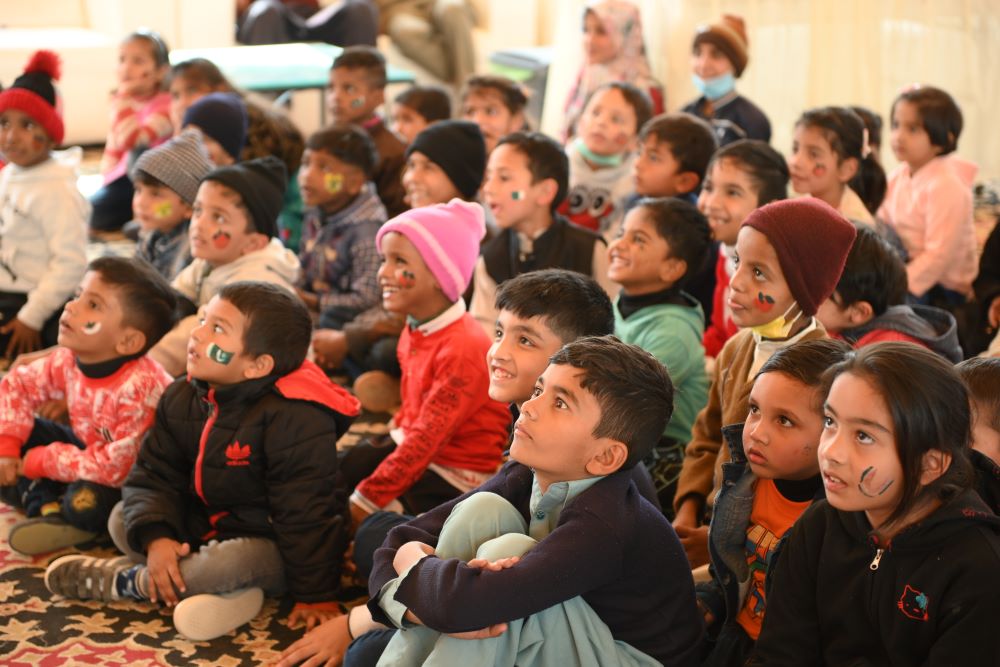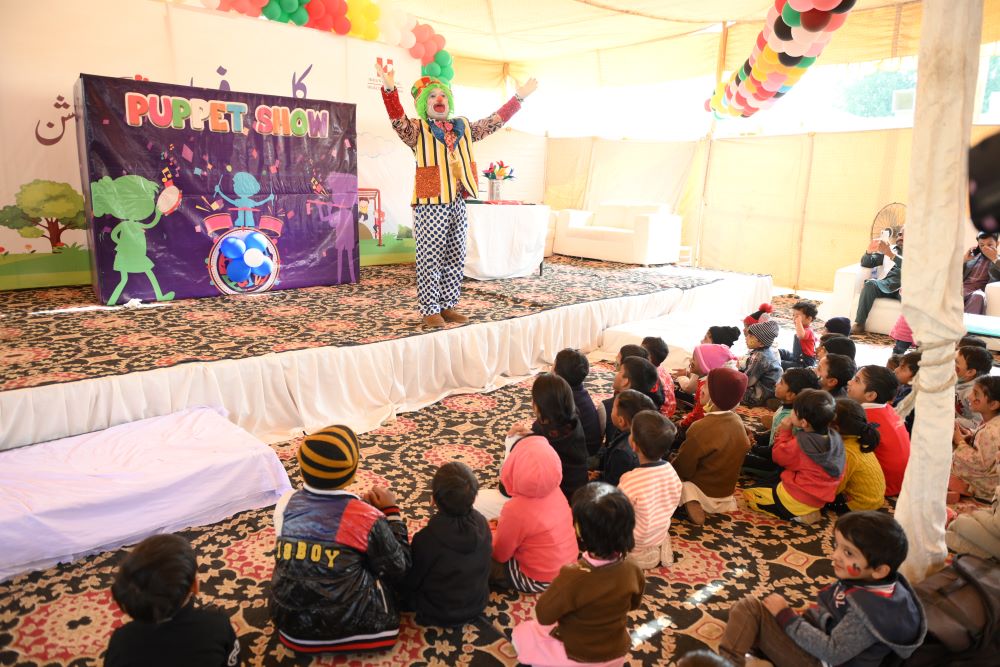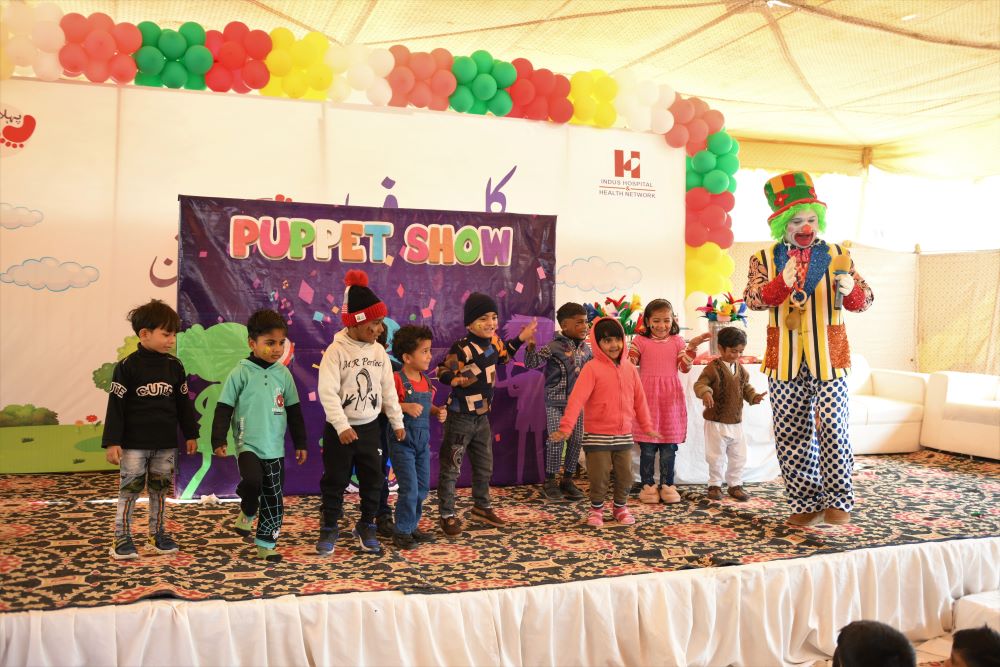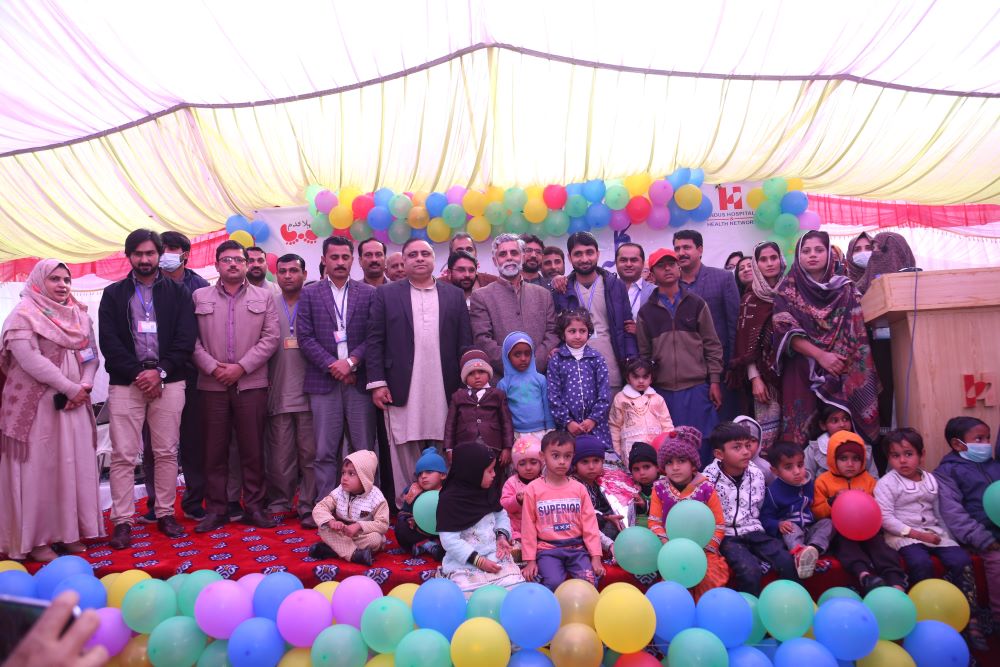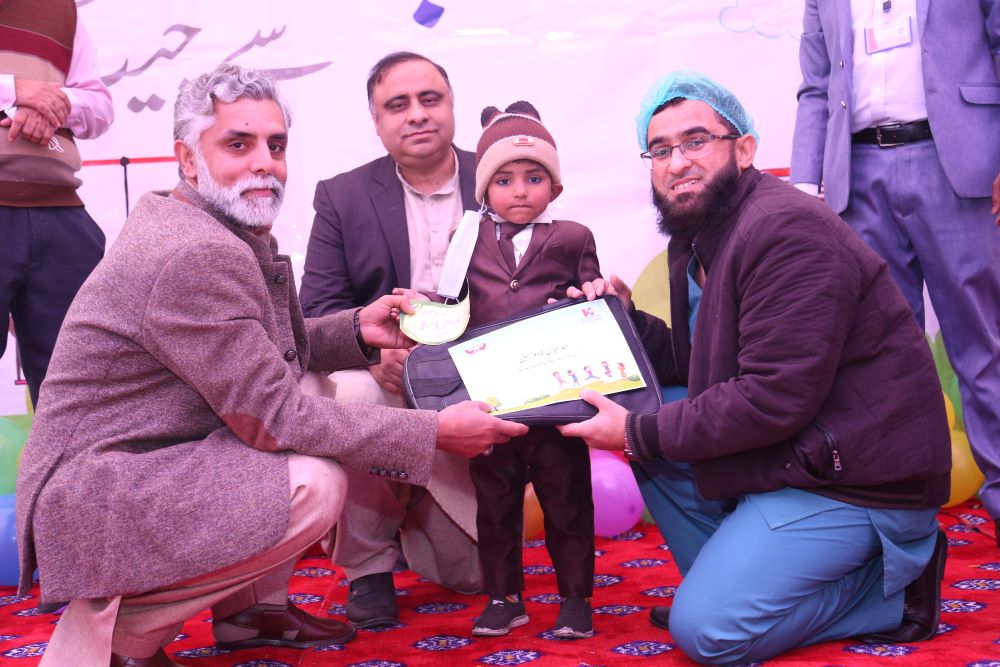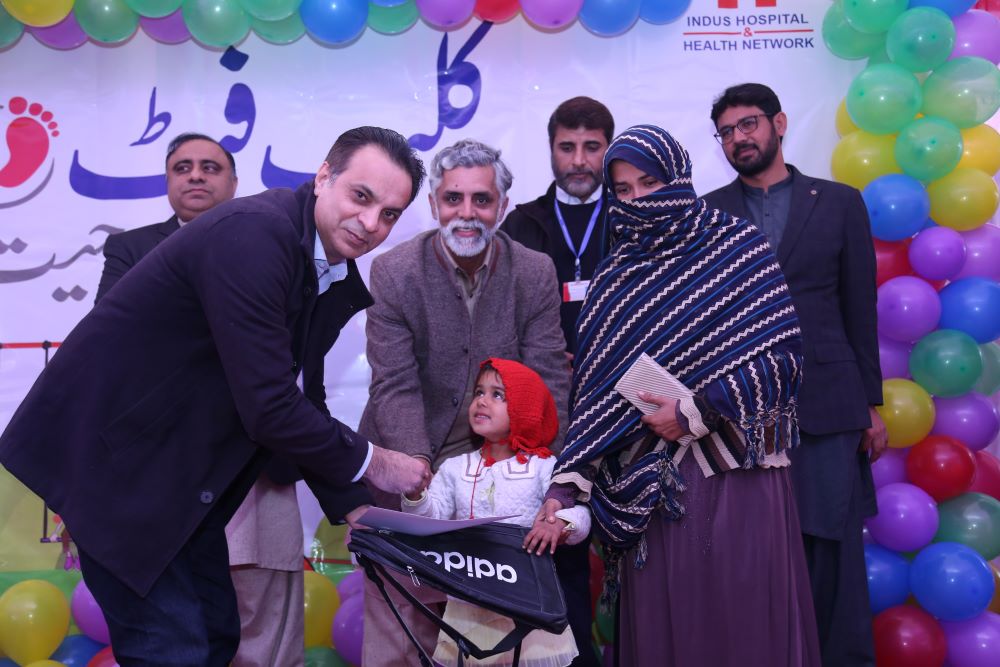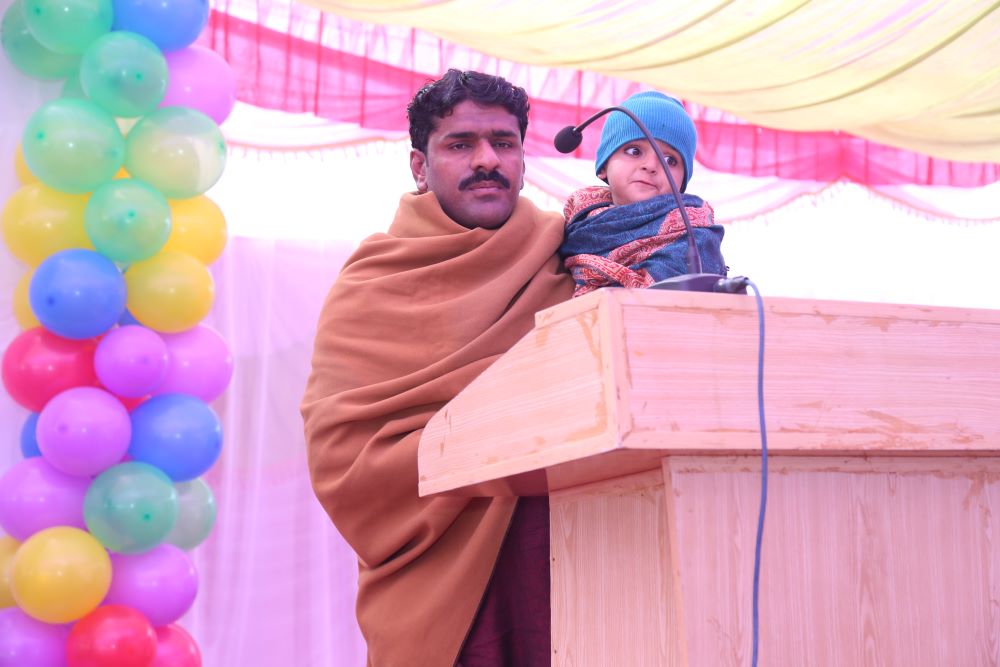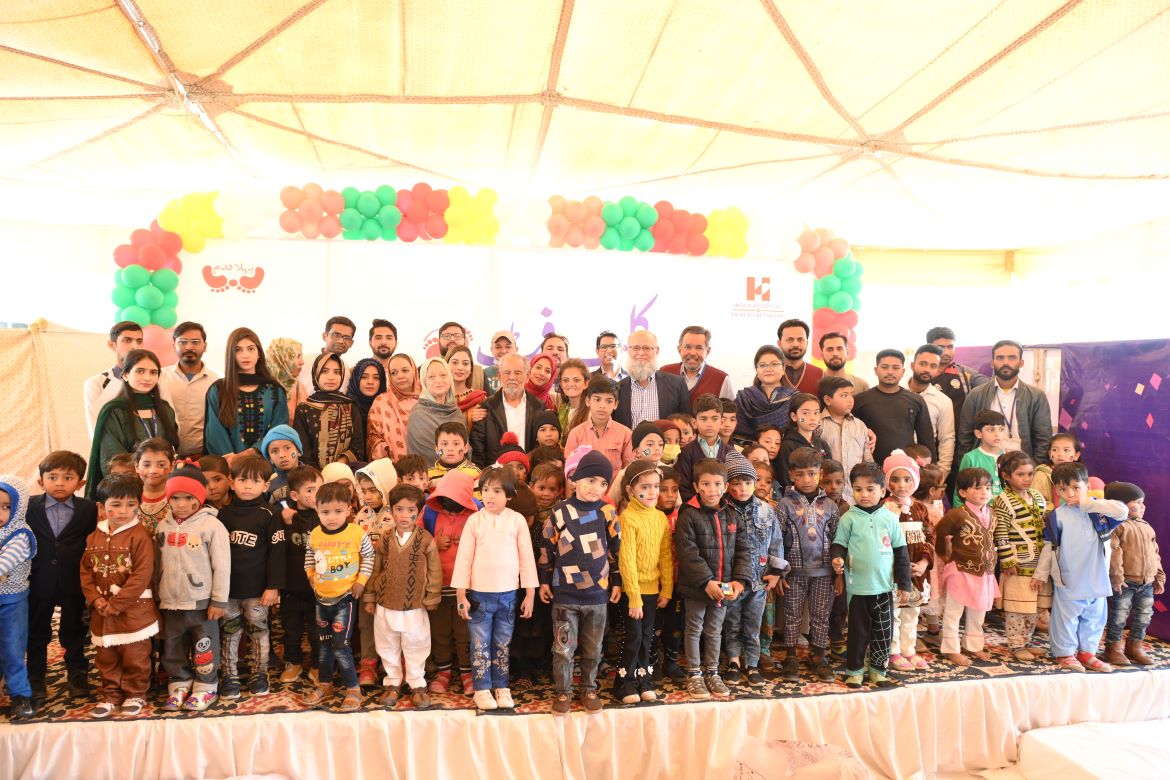IHHN Holds “Clubfoot Se Jeet ka Jashan” | 2023
“Clubfoot Se Jeet ka Jashan” is an annual event held by Indus Hospital and Health Network (IHHN) to celebrate the success of children completing the four-year treatment for clubfoot through IHHN’s Pehla Qadam Program.
This year, 72 children at The Indus Hospital (TIH), Korangi, and 30 at Recep Tayyip Erdogan Hospital (RTEH), Muzaffargarh, completed their treatment and participated in the exciting festivities.
Celebrations took place on January 7, 2023, in Karachi and on January 9, 2023, in Muzaffargarh. The events were attended by children and their families, invitees from the respective hospitals, and clubfoot program team members. All gathered to celebrate the children’s first walk and acknowledge the remarkable efforts of each child and their family in complying with the long course of treatment.
The events also helped spread awareness about clubfoot – a condition in which a newborn’s foot or feet are rotated internally at the ankle. In Pakistan, many taboos and superstitions surround the condition and place unfair blame on the parents of the child. This prevents them from seeking proper treatment for their child. Pehla Qadam (PQ) strives to eliminate these dangerous misconceptions and provide quality care to children with clubfoot enabling them to lead normal lives.
Clubfoot Se Jeet ka Jashan – Event Activities
The events started with a recitation of the Holy Quran.
At TIH, Korangi, the parents and Pehla Qadam (PQ) team members took the stage and gave short speeches detailing their remarkable experiences at the PQ program and the lifelong relationships built there. They were followed by the PQ program directors and donors who provided heartfelt messages of support, commending the families and staff for their unwavering dedication and hard work.
At RTEH, Muzaffargarh, the audience was addressed by Dr. Gohar Nawaz Khan, Head of the Orthopedic Department, RTEH, who welcomed the distinguished guests.
“The Pehla Qadam program started in 2017 (at RTEH). Since then, children born with clubfeet come to Indus Hospital Muzaffargarh for treatment which lasts for four years. Upon completion, the child’s feet are completely healed, and they are able to walk normally. In the program’s first batch, 40 children were successfully treated, and today, 30 children have fully recovered and are with us today, celebrating this victory. So far, 455 children have been registered at RTEH and are on the road to recovery.”
Following him, Dr. Mubashir Khan, Manager of Public Health Initiative, RTEH, said, “Recep Tayyip Erdogan Hospital is not only treating children with congenitally deformed feet from the surrounding area but also from other provinces and remote regions. In addition to treatment, the hospital provides two-way fare for patients and their caretakers for follow-up visits.”
The events’ entertainment included a thrilling magic show, a puppet show, and a series of juggling acts, each of which took turns gracing the stage and engaging the audience. Certificates were also distributed to the Pehla Qadam volunteers and team members to acknowledge their valued efforts.
Afterward, refreshments were served. Each child left the happy occasion with a colorful goodie bag bursting with a school bag, coloring books, small toys, and art supplies.
Pehla Qadam Program
In 2011, The Indus Hospital launched a service delivery program Pehla Qadam in collaboration with Amer Haider Charitable Foundation, to treat children with clubfoot through the Ponseti method. The center receives patients from all over the country and is part of a global commitment to eliminate untreated Clubfoot. Since its inception, more than 1,000 patients have been enrolled in the program.
